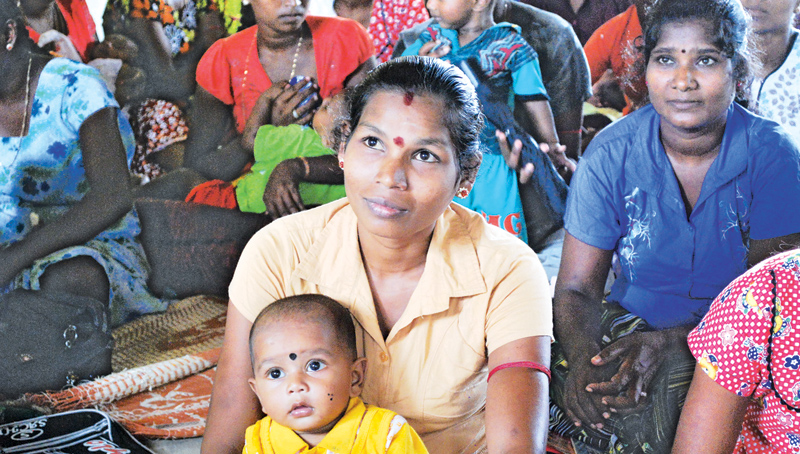After nearly 110 years of the very first observance of a Women's Day in New York, it is being celebrated world over now every year. International bodies, governments, women's organisations, community groups, and even businesses and charities rally together to mark the occasion with many varieties of activities - all with the good intention of promoting the well-being, security and the progress of women throughout the world. The Day also highlights the achievements of women, and acts as a catalyst to cause positive changes in the lifestyle of women globally. Sri Lanka is no exception, with many kinds of activities taking place today.
As usual, Women's Day activities will include talks and discussions, seminars and workshops, rallies and other performances and many more of them. The focus of all those activities will be on or around poverty, gender parity, education, unemployment, domestic violence and on similar issues related to women.
No doubt they are of great importance for the well-being and the uplift of the status of any woman - young or matured. But compared with the issue of early marriages and teenage pregnancy of women, they all become secondary and less important, due to the harm and the damage caused to the entire future life of a young woman through both these calamities, which are massive, irrevocable and devastating.
Early marriage and teenage pregnancy
In developing countries like our own Sri Lanka, early marriage and teenage pregnancy are the main cause of death for girls between 15 and 19 years during childbirth, due to complications. Early marriage also threatens the health of both the mother and the child. Young girls also experience the risk of delivering pre-term or having a low birth weight baby. Infant mortality rates are 60% higher with young mothers, and the infant born tends to have a weaker immune system and faces a heightened risk of malnutrition.
On a day, when attention is paid to the issues of women globally, it is very pertinent to address the major issue of early marriages and teenage pregnancy facing young women from around the world. While so many research and survey reports are available covering these two top issues of young women, International Centre for Research on Women (ICRW) reveals the following daring information vis-à-vis developing countries:
• One third of the girls are married before the age of 18 and 1 in 9 are married before the age of 15.
• In 2012, 70 million women had been married before the age of 18.
• If present trends continue, 150 million girls will be married before their 18th birthday over the next decade. That’s an average of 15 million girls each year.
Future generations
The World Health Organization states that an estimated 140 million girls will become child brides between 2011 and 2020; girls who marry before age 18 are typically denied an education, at risk of complications related to premature childbearing, and more vulnerable to intimate partner violence. According to the Family Health Bureau of the Ministry of Health, 6.5% of the total pregnancies registered in 2010 in Sri Lanka were teenage pregnancies.
A community based comparative study on “Risk factors for teenage pregnancies” conducted in Colombo, Anuradhapura and Batticaloa from December 2010 to April 2011, by a team of high profiled medical experts has recommended that Comprehensive Reproductive Health Education can undoubtedly help abate the number of teenage pregnancies in Sri Lanka, and ensure safer, healthier lives for future generations. Such effective preventive programmes could be the solution, to influence the occurrence of early marriage and teenage pregnancies among young women in the vulnerable areas of the country.
It is in the above context that a groundbreaking mega project is being aptly launched today by the Family Planning Association of Sri Lanka (FPA Sri Lanka) in the BOI region in Seethawaka (Avissawella) to provide the required comprehensive reproductive health knowledge and services, primarily, to the young female workers employed in the various work places of the region. Seethawaka has been selected, apparently, in view of the findings through the said comparative study carried out in Colombo.
Through the Seethawaka Project, FPA expects to expose both young male and female workers in the BOI region to seminars, workshops, training as well as community and peer group discussions on various aspects of reproductive health issues, aimed at doing away with early marriages and teenage pregnancies by the young people.
The cooperation of the managements of all worksites in the region has been guaranteed to the FPA Sri Lanka.



Add new comment